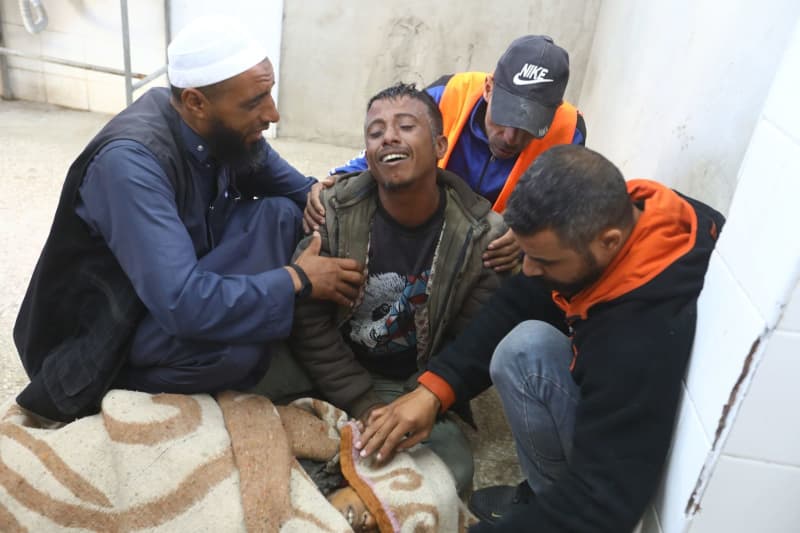An escalation of violence in the Gaza Strip has resulted in the tragic loss of at least 16 lives, following an Israeli army attack on a building that was previously a school. The attack occurred in the Nuseirat refugee camp, where many internally displaced Palestinians had sought refuge. Medical staff at the al-Awda hospital reported a high number of injuries alongside the fatalities, underscoring the humanitarian crisis unfolding in the region. Eyewitness accounts indicated that civilians had gathered in the building in the hope of finding safety amidst the ongoing conflict. However, the Israeli military claimed that their operations were specifically aimed at neutralizing fighters from the Hamas militant group, emphasizing their intention to minimize civilian casualties.
The Israeli forces have been executing a significant military campaign against Hamas since the group carried out a large-scale attack in October 2023, which resulted in considerable loss of life and numerous abductions within Israel. The incident reportedly claimed around 1,200 lives in southern Israeli communities and led to the kidnapping of 250 individuals. In response to the attacks, Israel has intensified its air and ground operations in Gaza, leading to extensive destruction throughout the area, with entire neighborhoods being reduced to rubble. The situation remains dire, with the ongoing conflict exacerbating the humanitarian crisis and leading to widespread displacement and suffering among the population.
According to data relayed by Hamas authorities, the toll from the conflict in Gaza has reached alarming levels, with over 42,800 people reportedly dead and more than 100,000 injured. Most of the casualties are reported to be civilians, highlighting the severe impact of the military operations on the non-combatant population. The figures provided remain contentious as they do not make clear distinctions between armed militants and innocent civilians, a point of contention that complicates the narrative surrounding the conflict. The desperate situation in Gaza continues to evoke international concern, as both sides struggle to achieve their military objectives while the civilian population pays an increasingly heavy price.
The ongoing violence has led to numerous international calls for ceasefire and negotiations to end hostilities. However, diplomatic efforts have been met with challenges, as both Israel and Hamas remain deeply entrenched in their respective positions. The complexity of the conflict, rooted in historical grievances and geopolitical tensions, makes finding a resolution increasingly difficult. As the humanitarian situation deteriorates, there is a growing need for humanitarian aid and access for relief organizations to support the affected population, but logistical and political barriers complicate these efforts.
The humanitarian plight facing civilians in Gaza has drawn attention from various global organizations advocating for an immediate cessation of hostilities. Many have highlighted the overpopulated conditions in the enclave, where shortages of food, water, and medical supplies have reached critical levels. The relentless bombing and ground assaults exacerbate the situation, leaving many families without basic needs and shelter. As casualties continue to rise, the world watches with increasing alarm, and activists call for accountability for actions taken by both parties in the ongoing conflict.
In conclusion, the tragic unfolding events in Gaza, punctuated by this recent attack on a makeshift shelter in a former school, reflect the broader complexities and humanitarian crises engendered by the Israeli-Palestinian conflict. With heavy civilian casualties and a rapidly deteriorating environment, the situation calls for urgent international attention and intervention. Both sides must navigate a difficult path toward reconciliation and peace, driven by a genuine commitment to stop the cycle of violence and prioritize the safety and dignity of all individuals caught in the crossfire. The escalating nature of the conflict, coupled with the dire humanitarian implications, underscores the pressing need for a comprehensive resolution that addresses the fundamental issues at stake.

